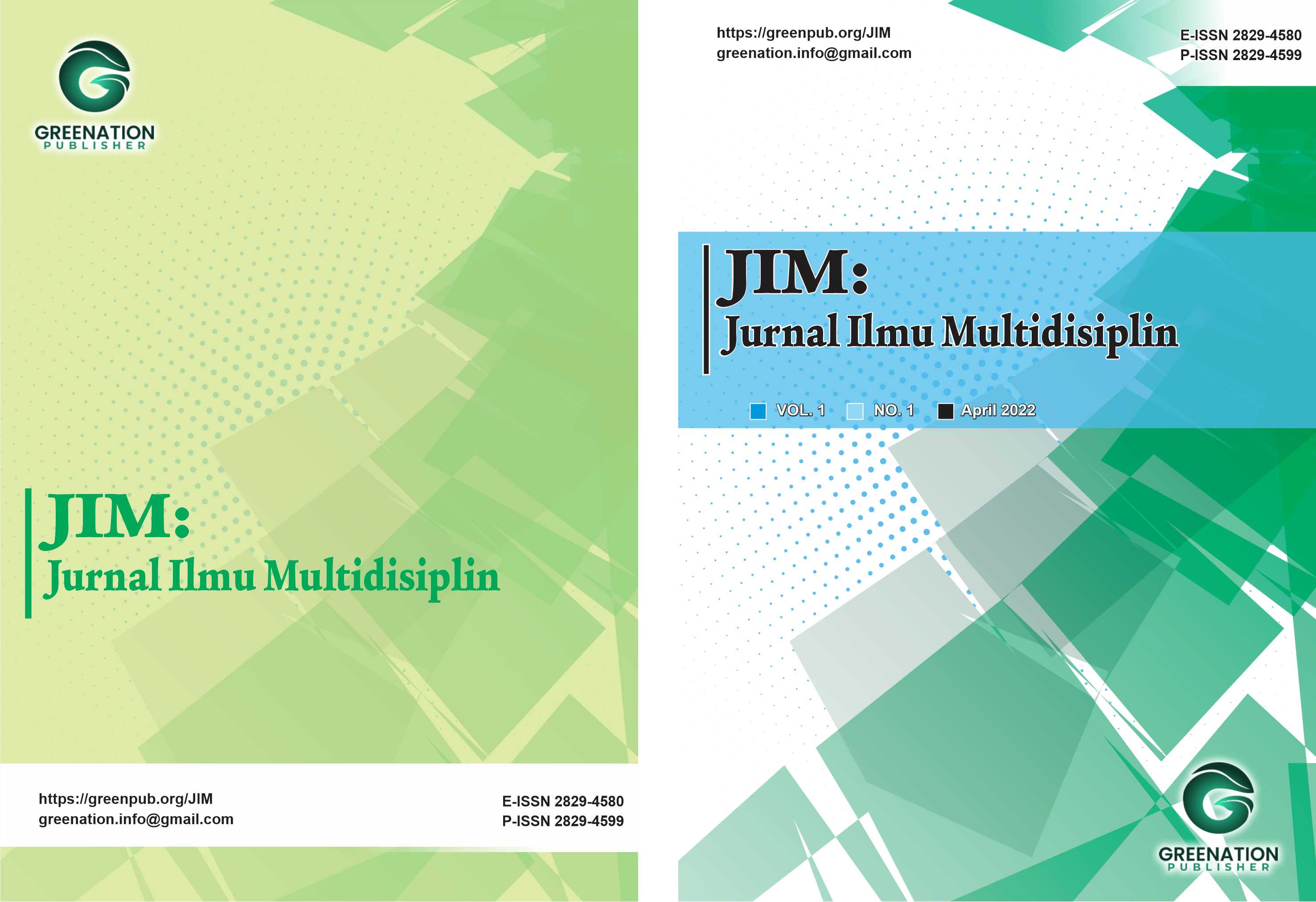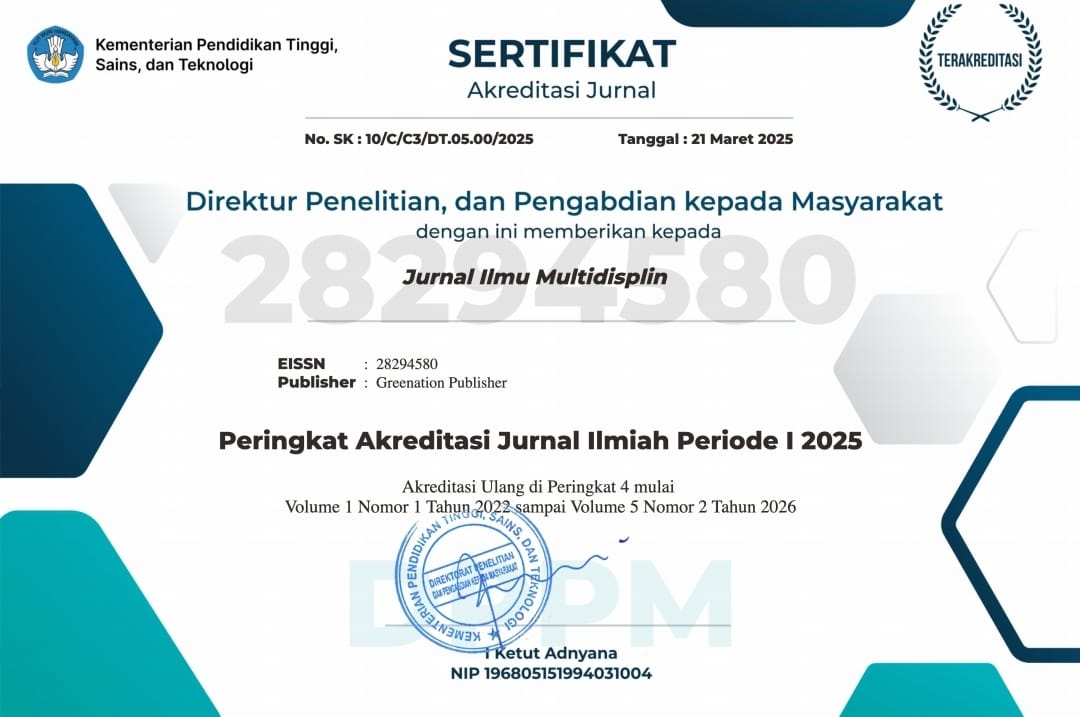Implementasi Konsep Green Hotel pada Royal Kamuela Villas & Suites at Monkey Forest, Ubud
DOI:
https://doi.org/10.38035/jim.v4i2.1001Keywords:
Green hotel, pariwisata berkelanjutan, 3R (Reduce, Reuse, Recycle), pengelolaan limbahAbstract
Penelitian ini bertujuan untuk mengkaji implementasi konsep green hotel pada Royal Kamuela Villas & Suites at Monkey Forest, Ubud, sebagai bagian dari upaya mendukung pariwisata berkelanjutan di Bali. Melalui pendekatan kualitatif deskriptif, penelitian ini menggali praktik ramah lingkungan yang diterapkan, seperti prinsip 3R (Reduce, Reuse, Recycle), pengelolaan limbah, penghematan energi, dan penggunaan bahan ramah lingkungan. Data dikumpulkan melalui observasi, wawancara mendalam, dan dokumentasi, serta didukung oleh studi pustaka. Hasil penelitian menunjukkan bahwa meskipun telah diterapkan dengan baik di beberapa departemen, masih terdapat tantangan seperti konsistensi penerapan antar departemen, keterbatasan alat pendukung, dan rendahnya kesadaran sebagian tamu. Namun demikian, inisiatif green practices ini berdampak positif terhadap efisiensi operasional, peningkatan citra hotel, serta kontribusi terhadap kelestarian lingkungan. Penelitian ini merekomendasikan perlunya pelatihan berkelanjutan, peningkatan kesadaran tamu, serta adopsi teknologi hijau guna memperkuat praktik keberlanjutan di sektor perhotelan.
References
Creswell, J. W. (2022). Qualitative Inquiry and Research Design: Choosing Among Five Approaches. SAGE Publications.
Green Hotels Association. (2018). Green Hotels: Best Practices and Sustainability Programs. Retrieved from https://www.greenhotels.com
Hadi, A., et al. (2022). "Sustainable Practices in Hotel Industry: Impact on Operational Costs and Customer Satisfaction." International Journal of Hospitality Management.
Hamit, M. (2008). "Environmental Sustainability in Hospitality Management." Journal of Tourism & Hospitality, 5(2), 123-137.
Maulana, F., et al. (2022). Guidelines for Implementing Green Hotel in Indonesia. Ministry of Tourism and Creative Economy.
Rahman, M., et al. (2023). "Green Practices in the Hospitality Sector: A Case Study of Hotel Operations." Journal of Sustainable Tourism, 31(4), 250-263.
Saldaña, J. (2021). The Coding Manual for Qualitative Researchers. SAGE Publications.
Suyoto, T. (2008). "Prinsip Pengelolaan Lingkungan dalam Industri Perhotelan." Jurnal Pengelolaan Sumber Daya Alam, 10(3), 45-58.
Tan, W. & Yeap, J. (2009). "Implementing Sustainability in Hotel Operations: Challenges and Strategies." Sustainability Journal, 12(1), 19-32.
Tan, W., & Yeap, J. (2021). "Eco-Friendly Practices in the Hospitality Industry: How Green Hotels are Changing the Landscape." Sustainability Journal, 15(6), 1423-1435.
Wiratma, S. (2015). Tourism Development and Environmental Sustainability in Indonesia. Jakarta: University Press.
Wicaksana, D., & Rachman, D. (2018). Green Tourism: Impacts on Local Communities and Environment in Indonesia. Bali: Tourism Research Journal.
Downloads
Published
How to Cite
Issue
Section
License
Copyright (c) 2025 Ni Putu Helda Silpia Apriyani, I Wayan Karta

This work is licensed under a Creative Commons Attribution 4.0 International License.
You are free to:
- Share— copy and redistribute the material in any medium or format
- Adapt— remix, transform, and build upon the material for any purpose, even commercially.
The licensor cannot revoke these freedoms as long as you follow the license terms.
Under the following terms:
- Attribution— You must give appropriate credit, provide a link to the license, and indicate if changes were made. You may do so in any reasonable manner, but not in any way that suggests the licensor endorses you or your use.
- No additional restrictions— You may not apply legal terms or technological measures that legally restrict others from doing anything the license permits.
Notices:
- You do not have to comply with the license for elements of the material in the public domain or where your use is permitted by an applicable exception or limitation.
- No warranties are given. The license may not give you all of the permissions necessary for your intended use. For example, other rights such as publicity, privacy, or moral rightsmay limit how you use the material.



























